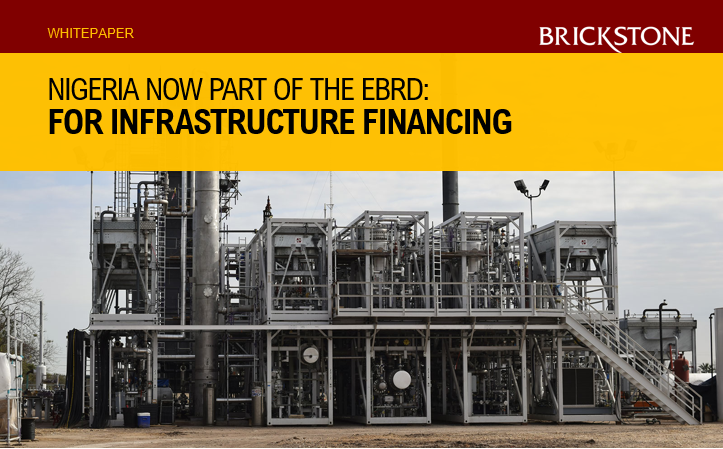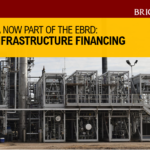Government Equity Participation In PPPs: Key Commercial Considerations
Government Equity Participation In PPPs
Government Equity Participation in Public-Private Partnerships are beneficial in many ways to the government and to the private investors. Nonetheless, there are some downsides to this sort of arrangement.
Firstly, it must be noted that Public-Private Partnerships have gained global recognition as rewarding instruments used to effectively bridge the gap between the demand for project infrastructure to achieve industry or national development on the one hand and the worrying lack of public finance to achieve the same on the other hand. Therefore, it suggests a collaboration of the government and the private sector in achieving a common goal, which would of course, provide individual benefits to both parties.
Nonetheless, it must be emphasized that as favorable as a Public-Private Partnership is, there are also some disadvantages to it. Therefore, any player in this sort of alliance, especially when there is the presence of Government Equity Participation, must first take cognizance of certain key considerations, which have been expounded in this White Paper.
In addition to the above, this White Paper prepared by the Brickstone Africa Team, in much more detail explains a Public-Private Partnership and why it typically arises. Furthermore, it expatiates on the practice of Equity Participation by the Host Government in these Public-Private Partnerships, the motivations behind this practice, as well as its merits and demerits, and the important subject matters to be aware of before entering into it. Finally, to ensure proper understanding of the practice of Government Equity Participation in Public-Private Partnerships it refers to a case study of The West African Container Terminal, Onne.
In project development, a situation may arise where the project in question is a large and complex one. Hence, there is often the problem of huge capital investment and high uncertainties ordinarily attached to the project, resulting in situations where the private sector is incapable and/or unwilling to cater for the huge financial demand of the project.
As a result of the foregoing, many projects could suffer huge setbacks and begin to lose value to the public. To avoid this, the host government may decide to provide public funds to strengthen the financial viability of these projects as well as to increase transparency of the potential alliance. One of the ways the host government does this is through Equity Participation.
As considered in this White Paper, Equity Participation signifies the proprietary interest or ownership in an asset. It is used to permit partial ownership in a project infrastructure in exchange for financing. As such, in certain instances when a host government provides financing to a certain project, the government gains ownership of a certain percentage of such project.
It must be noted that such financing by the host government to its private partners can be done either directly, mostly through participation from the relevant institution or agency that is authorized by law or regulation, or indirectly, through a public infrastructure fund. This kind of equity participation may also be a way of directly or indirectly giving the government’s assurance to the private partner or project company about its support for implementation and operation of the project infrastructure.
This White Paper also considers other important motivations or favorable objectives on the part of the government to enter an Equity Participation arrangement for a project. The government may choose an Equity Participation arrangement because it wants to boost daily control and secure direct access to accounts and day-to-day control of the company; it may also choose to do this because it is a viable option to provide assurance to private financial advisors and make the infrastructure project commercially feasible in a case where these private financial investors have some doubts about the project and are unwilling and/or incapable of committing the whole or part of the finances to the project.
Other motivations for the host government to enter into an Equity Participation arrangement for a project are thoroughly discussed in this White Paper.
Additionally, this White Paper sheds light on some important merits and demerits that both parties in a Public-Private Partnership involving Government Equity Participation, must give serious and careful thought to, before pulling their resources into it. Some of the benefits of Government Equity Participation in PPPs include that with the involvement of the government in the project, there is a balance of responsibility required in the infrastructure project, thereby cushioning the effect on the private sector.
Further, regarding the day-to-day running of the project, the government would be able to exercise some level of management and control, and also make decisions, whilst keeping the public’s best interest at heart. Additionally, where the project requires a huge capital investment or where equity capital from investment funds or other private investment sources are inaccessible, Government Equity Participation is usually a good supplement or alternative to equity financing made available by private investors.
This Government Equity Participation is also advantageous in achieving a satisfactory debt-equity ratio which is important in keeping the debt service responsibilities manageable in the early years of project operation or performance. In addition to the above, this White Paper looks into numerous advantages to Government Equity Participation in Public-Private Partnership.
Furthermore, this White Paper iterates that Government Equity Participation does not completely resolve all of the problems arising from Public-Private Partnerships. Hence, it has some disadvantages which have been considered in necessary detail in this White Paper, and some of them include that such arrangement may increase the probability of conflict of interest between the government and members of the project company.
Also, because the private sector seeks to always ensure private autonomy in carrying out its duties, a participation by the government may cause them to feel uncomfortable. Likewise, it is of importance to note that Government Equity Participation in Public-Private Partnerships may lead to some complex tax and accounting issues for both parties.
This White Paper also refers to some key considerations that should be considered in ensuring the success of a Public-Private Partnership involving Government Equity Participation. Some of these key considerations include that the government equity investment may hold significant implications for the financial structuring of the infrastructure project.
Also, since the government has a double role, its nominated director is often faced with a duty to the project company and a duty to the public, and this may put him in a difficult situation. Likewise, there is a foreseeable conflict of interest that will arise on the part of the government, especially since it is both a client and an equity holder. Several other key considerations are explained in this White Paper.
Finally, this White Paper explores the case study of the West African Container Terminal, Onne by illustrating a concession type of Public-Private Partnership as well as the Landlord Model that may be employed by the government to retain a supervisory role for the project.
OTHER E-BOOKS THAT MAY BE OF INTEREST









